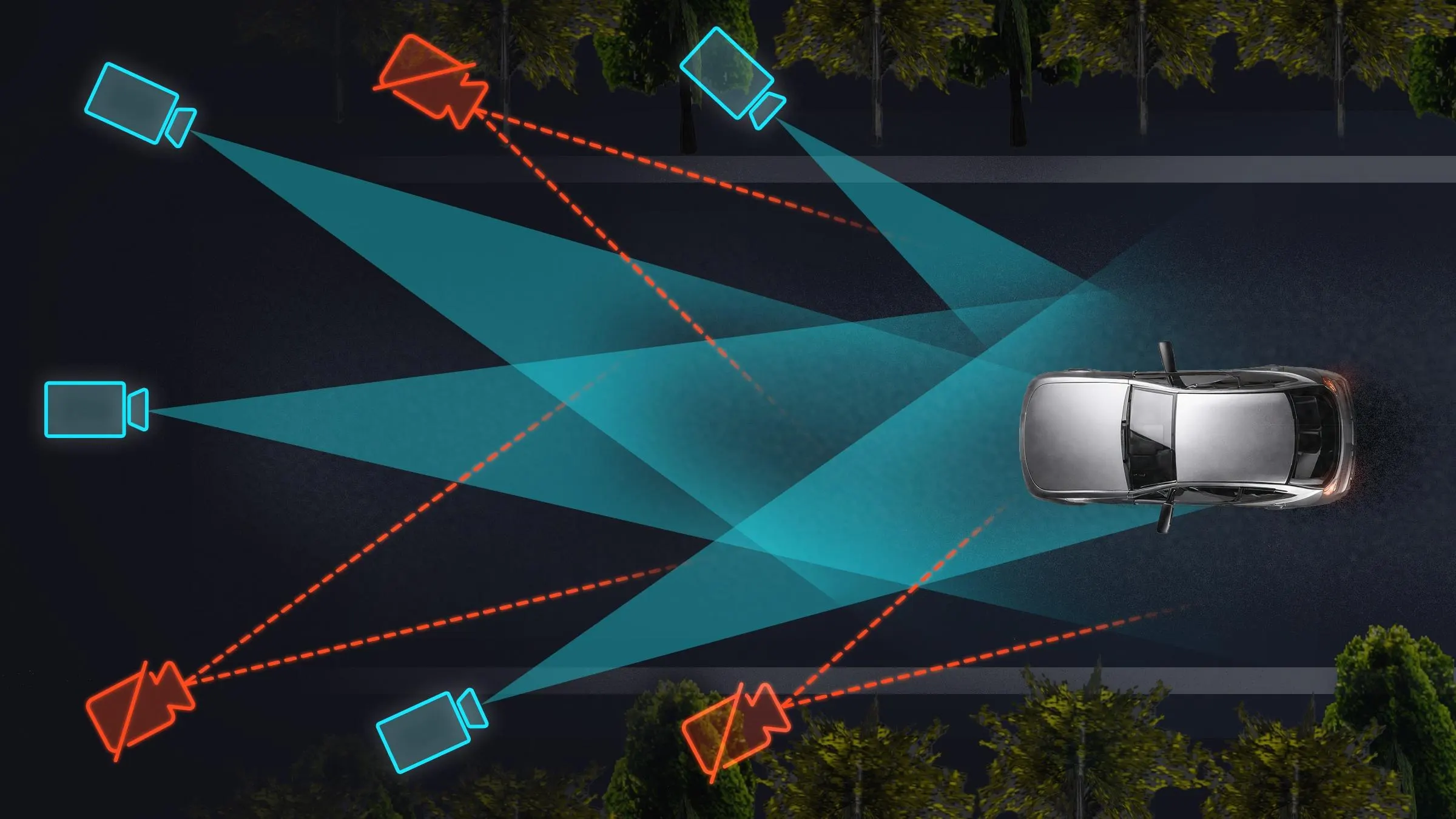Revised January 2, 2026
Most South Lake city residents probably don’t know that automated license-plate-reader (ALPR) cameras have been operating in our community for nearly two years. These cameras, built by Flock Safety, are used by the South Lake Minnetonka Police Department (SLMPD) across all four Joint Powers Agreement (JPA) cities: Shorewood, Excelsior, Greenwood, and Tonka Bay.
The issue resurfaced this fall when Shorewood resident Andrew Daly emailed the City Council on September 5, warning that Flock’s cameras had quietly created a vehicle-tracking network across the South Lake area, raising questions about privacy, data security, and constitutional protections. Several council members forwarded his message to the City Administrator, prompting a request for a public discussion. That discussion finally occurred on November 10, 2025, at a City Council work session.
Watch the Flock rep answer questions here.
This work session was the first meaningful public conversation Shorewood has had about Flock since the cameras were originally mentioned in October 2023 (start min. 10:05), and even then, the discussion was brief. At the time, the cameras were presented as a narrowly focused, grant-funded tool to help recover stolen vehicles, with an estimated cost to Shorewood of about $800. There was almost no discussion of privacy, policy, data retention, metrics, cybersecurity, or how long the system would be used. And, because the cameras were adopted at the multi-city level, Shorewood residents had no visibility into any conversations that may have occurred within the SLMPD Coordinating Committee.
Today, the program has expanded well beyond stolen-vehicle recovery. ALPR systems like Flock’s are widely used nationwide to assist with many types of investigations from hit-and-runs to missing persons, and to provide evidence in criminal cases. Yet there is still no local policy explaining how the system should be used, what limits apply, how data is safeguarded, or how effectiveness should be measured.
How Flock Cameras Entered Shorewood
Because Shorewood does not operate its own police department, we share SLMPD with three neighboring cities under a JPA. Under this agreement, major decisions about policing, including budgets, technology acquisitions, and department-wide policies, are made by the SLMPD Coordinating Committee, which consists entirely of the mayors of the four cities.
Each mayor serves on the committee automatically by virtue of being elected. There are no additional committee seats, no rotating council representation, and no resident members. As a result, technology decisions made for the entire police department occur at the JPA level and only reach the Shorewood Council if the mayor brings them forward.
This is the governance environment into which Flock cameras were introduced. They were acquired, installed, and renewed through SLMPD’s regional process, not through a dedicated Shorewood Council vote. Until Daly’s email prompted a council member’s request for discussion, the broader council and, by extension, the public, had not been included in the conversation.
The November 10 work session was therefore the first real opportunity in nearly two years for Shorewood officials and residents to ask how the system works, who can access its data, and whether the city has adequate oversight.
What the November 10 Work Session Revealed
The LMCC video of the meeting captures a council working through complex information in real time, trying to understand a system that had never been formally presented for their review. The discussion moved from basic questions to deeper concerns about data access, cybersecurity, transparency, cost, and the statutory requirements SLMPD is expected to meet. (See here. Item 2A of the work session agenda)
It also became clear that even SLMPD leadership does not have full visibility into Flock’s vendor-controlled systems, particularly on data security, software configuration, and the technical architecture behind data sharing.
What We Learned From Flock
Flock’s representative, Trevor Chandler, joined via Zoom to explain how the system works. He described its core functions as plate detection, vehicle fingerprinting, and real-time alerts, and emphasized that data “belongs to Shorewood” and that sharing is “off by default.”
But the council’s questions revealed a more complicated reality.
Regional Data Sharing
Chandler explained that SLMPD can choose to share ALPR data with any number of partner agencies. Once granted, those agencies can access and search Shorewood’s ALPR data directly through their own Flock portals. This means a single decision made at the SLMPD level governs a potentially broad regional network, one that residents have never reviewed.
AI Training
Chandler confirmed that about one percent of all images gathered nationwide are used to train Flock’s AI models. These are described as “anonymized,” but council members questioned how much meaningful information can truly be removed when images involve time, location, and vehicle characteristics, especially when the data is re-aggregated or used with other metadata, geolocation, or fencing.
Unanswered Questions
When Council Member Michelle DiGruttolo asked about breach-notification timelines, vendor-side cybersecurity requirements, and contractual obligations, Chandler could not provide specifics. He indicated he would need to review Minnesota law and the contract, suggesting that neither the Council nor the public currently has clear written information about what happens if Flock systems are compromised.
A System Operating Without Its First Audit
SLMPD Chief Justin Ballsrud offered additional information. The department adopted Flock cameras nearly two years ago using a Minnesota Department of Commerce grant intended for stolen-vehicle prevention. That grant kept the initial cost low. Shorewood’s portion was estimated at approximately $800 in 2023, but the ongoing cost now appears to be closer to $12,000 per year. No information was provided on Shorewood’s new shared cost.
Chief Ballsrud also confirmed that although Minnesota law requires a biennial independent audit of all ALPR systems, SLMPD has not yet completed its first audit. The first review is scheduled in 2026.
This means SLMPD has been running a regional surveillance system for nearly two years without completing the audit that is supposed to verify compliance with state privacy and data-handling laws. Yet the contract with Flock is expected to come up for renewal before those audit results are available.
This timing issue was a significant concern for several council members. Without an audit, the city does not know whether:
- non-case data is being deleted within the 60-day statutory window,
- access logs are complete and accurate,
- outside agencies are using the data properly, or
- cybersecurity standards are being met.
In response to numerous questions from Council member DiGruttolo, Chief Ballsrud provided some limited outcome data, stating that Flock cameras had resulted in two stolen vehicles recovered, one Amber/Silver alert assist, and 143 Flock-related “contacts” over two years, mostly for driving violations, but could not provide a false-positive rate, demographic information on stops, or evidence that Flock has improved case clearance rates. Chief Ballsrud did not state whether that information came from Flock cameras located in Shorewood or in the greater SLMPD jurisdiction. The council also learned that SLMPD has already shared access with several regional agencies, including Minnetonka, Hopkins, and Plymouth, though a full list was not available.
Cost, Access, and a Widening Transparency Gap
Taken together, the work session highlighted several unresolved issues:
- The cameras are now significantly more expensive than originally presented.
- Regional agencies can access Shorewood data, but the full list of who can query it is unknown.
- No ALPR audit has been completed.
- No clear policy guides how the system should be used or evaluated.
- Shorewood’s Council did not have a full discussion about the system between October 2023 and November 2025.
None of these issues are unique to Shorewood; they are common in regional policing arrangements. But they underscore why public awareness and local oversight matter. Surveillance tools affect every resident equally and, in a shared system, oversight must be deliberate, not assumed.
Why Renewing Before the Audit Poses a Problem
An audit is meant to verify whether a system is compliant, secure, and operating within the law. It should identify vulnerabilities, outline required fixes, and establish consequences if problems are not addressed. Renewing a surveillance contract before receiving that information leaves the city without the evidence needed to weigh risks, costs, and public benefit.
In Shorewood’s case, the audit will not be completed until after the JPA cities are expected to make renewal decisions. That means residents and elected officials could be asked to move forward without the very accountability mechanisms state law requires.
How Residents Can Engage Constructively
This article is not about opposing or endorsing policing tools. It is about ensuring residents have access to the information necessary to understand how public-safety decisions affect the community.
If you believe decisions about surveillance technology should involve thoughtful public review, here are constructive next steps:
- Watch the LMCC recording of the November 10 work session to hear the full discussion.
- Contact the Mayor and City Council and request that no renewal occur until the audit is complete and publicly reviewed.
- Ask for publication of the existing Flock contract and the full list of agencies with data access.
- Support the creation of an annual transparency report covering usage, audits, access, and outcomes.
- Encourage the development of a clear public-safety technology policy requiring council review before new tools are adopted or renewed.
Shorewood is a community that values not only safety, but also transparency, accountability, and careful decision-making. The Flock camera discussion offers an opportunity for residents to stay engaged and help shape how our shared police department uses technology in the years ahead.
More reading and viewing:
South Lake Police policy for FLOCK access, 2023
Automated License Plate Reader Concerns, SCA, Nov. 10, 2025
We Hacked Flock Safety Cameras in Under 30 Seconds, @BennJordan, Ground News
Redmond PD completely suspends Flock camera use amid statewide concerns over ICE access, KOMO News
Border Patrol is monitoring US drivers and detaining those with ‘suspicious’ patterns, ABC News
How Flock Cameras Track Your Moves, @CityCastTwinCities
Let city leaders know what you think.
- Best option: attend and /or speak up at City Council meetings and get it on the public record.
- Contact City Council Members
Dustin Maddy (612) 293-6727 dmaddy@shorewoodmn.gov
Jennifer Labadie (952) 836-8719 jlabadie@shorewoodmn.gov
Michelle DiGruttolo (517) 422-9528 mdigruttolo@shorewoodmn.gov
Guy Sanschagrin (952) 217-1289 gsanschagrin@shorewoodmn.gov
Nat Gorham (617) 780-7771 ngorham@shorewoodmn.gov
Was this post useful?
Average rating 5 / 5. Vote count: 17
No votes so far! Be the first to rate this post.













